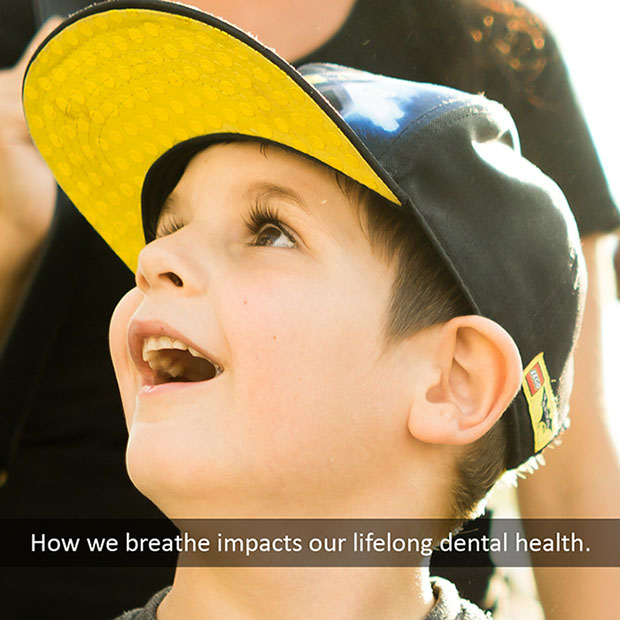How We Breathe Impacts our Teeth for Life

Mouth-breathing can cause all kinds of short-term issues.
Many of them are connected to poor sleep quality from getting insufficient oxygen by breathing through the mouth.
Short-Term Consequences of a Mouth-Breathing Habit
If a child exhibits the following symptoms, it could be due to mouth-breathing:
- Impaired speech. When a child’s mouth is always open, certain sounds become more difficult to say.
- Halitosis (chronic bad breath). An open mouth tends to be a dry mouth, which means there isn’t enough saliva to clean out the germs.
- Tooth decay. Other serious byproducts of dry mouth are tooth decay and cavities.
- Irritability, lethargy, and inattention. Less oxygen means worse sleep, which makes it much harder for kids to pay attention in school and to be their bright, happy selves.
How Mouth-Breathing Impacts Health Long-Term
While the above issues are bad enough, the problems that come from mouth-breathing don’t stop there. If left unchecked throughout childhood, mouth-breathing can cause the following:
- Extended orthodontic treatment. Braces will take longer and there will be a higher chance of the teeth shifting back to their pre-braces position.
- Altered facial structure. The bones in the face can actually develop differently because of mouth-breathing, resulting in flatter features, droopy eyes, a narrow jaw, and a smaller chin.
- Sleep apnea. Mouth-breathing can increase a person’s risk for sleep apnea, a dangerous sleep disorder that makes it difficult to get a restful night’s sleep.